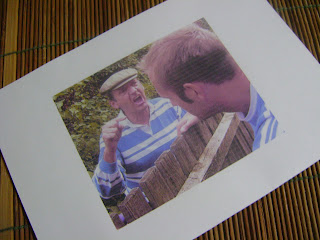
http://schools.esu13.org/morill/homework/readact/rdactivities.htm is veeery nice! They’ve got some ideas to work on reading with large groups and some others we can easily adapt to our private students!! If you don’t have time to check it out, no problem!!! I’m posting the ones that really caught my attention. Here they are:
a) ABC BRAINSTORM: Divide your class in small groups. Before class prepare a list with the alphabet and give each group. After reading students are supposed to fill out each letter of the alphabet with a word or a phrase related to the topic. (I’ll definitely use this one with my students!!)
b) COOPERATIVE READING: In teams, students read the text and then create questions about it to ask the whole class.
c) FACT/NONFACT: After reading, each team creates four statements about the text but two should be false. Then, they challenge the other teams.
d) PAIR SHARE: In pairs. One student reads a paragraph and the other explains what he/she understood from it and vice- versa.
e) POPCORN: Students read the text. Then, the teacher should call one of them to share a fact from the story. This one is supposed to call “Popcorn to Joe (another classmate's name)!” in order to pick the next student to share a fact from the story.
f) SEQUENCING: After students read the text in groups, the teacher gives them an envelope with the events of the story on slips of paper. Have students close their books and put the events in order. (This one I’ll use, too!!)
g) TRIVIA: Read the story and have a trivia contest!!
h) WORD OF THE DAY: The teacher chooses a certain word from the text and write it on the board. That word is gonna be the “word of the day” and students are supposed to repeat it a few times. After that, teacher should erase the word and whenever students see that word while reading aloud, they either shout “word of the day” or raise their hands.
I hope you liked, colleague! Have a nice class!




































